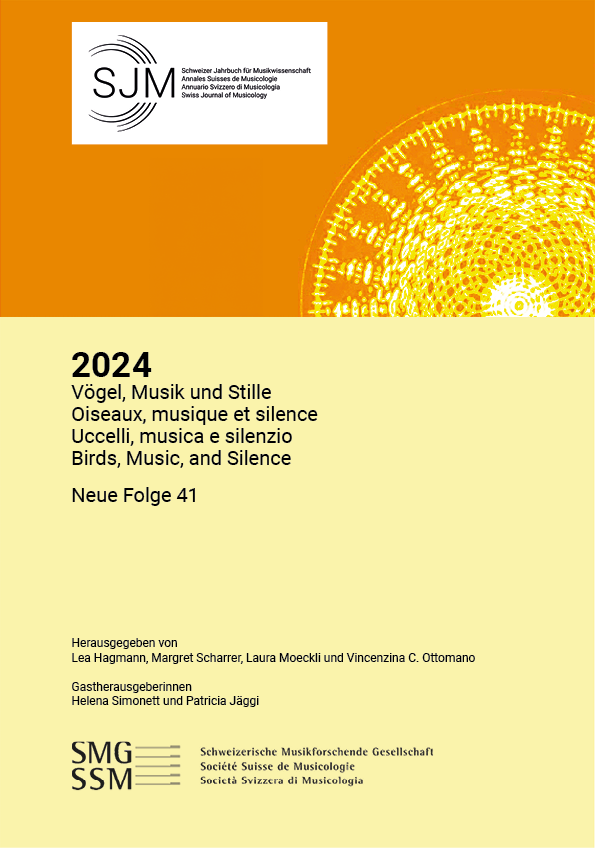The Anatomy of a Benign Failure: Péter Szőke’s Ornithomusicology as Represented in Barátom, Bonca, a 1975 Hungarian Children’s Film
DOI:
https://doi.org/10.36950/sjm.41.2Abstract
The 1975 Hungarian children’s television film Barátom, Bonca (Bonca, my Friend; directed by Ilona Katkics, screenplay by Katalin Varga) contains a remarkable scene in which a ten-year-old boy is initiated into the idea of universal music through a declaration that birdsong has musical quality. In my article I show that the scene was inspired by ornithomusicology, the one-man discipline of Péter Szőke, whose (pseudo)scientific activity in Kádár-era Hungary aimed to prove that birdsong and human music were governed by the same neurological and physical laws. Attending to the history of its genesis, I dissect the scene to demonstrate that everything one hears in it is the result of four consecutive instances of failure: wishful thinking in science, misinterpretation, misrepresentation and misidentification, of which the first can be ascribed to Szőke, the rest to the filmmakers. I show how the filmmakers’ factual errors were conditioned by age-old concepts of European culture, and I conclude that these errors nevertheless contributed to the artistic authenticity of the final product. This authenticity is inseparable from a strong sense of environmental ethics, which is partly conveyed by the specific way the word ‘music’ is used in the film.
Downloads
Downloads
Veröffentlicht
Ausgabe
Rubrik
Lizenz
Copyright (c) 2024 Gergely Loch

Dieses Werk steht unter der Lizenz Creative Commons Namensnennung 4.0 International.


